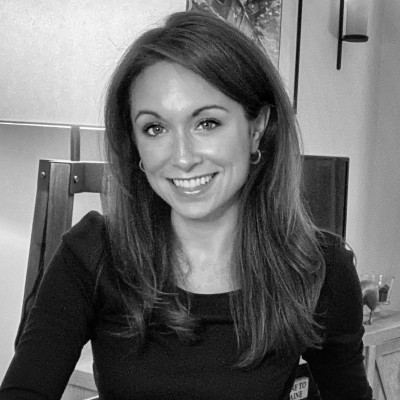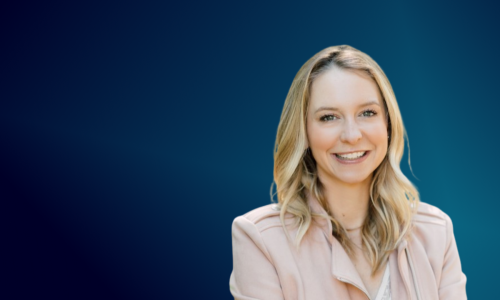David McCormick runs operations for both Siddhi Ops, an outsourced operations execution firm for entrepreneurial food and beverage brands, as well as Siddhi Capital, a newly launched venture capital arm of the business. We caught up with him to learn more about where investments are being made right now, operational challenges caused by COVID-19, how to future-proof companies, and more.
 ForceBrands: Tell us first about your background. You spent nearly a decade at Whole Foods where you were the Grocery Coordinator in the Rocky Mountain region. How does this experience translate to what you’re doing now?
ForceBrands: Tell us first about your background. You spent nearly a decade at Whole Foods where you were the Grocery Coordinator in the Rocky Mountain region. How does this experience translate to what you’re doing now?
David McCormick: I’ve been especially fortunate to have had the opportunities I’ve had in my career, working on both the retail and brand side of consumer packaged goods. My experience at Whole Foods Market was unique. I worked my way up from the lowest volume store to leading the largest department in the Rocky Mountain region. I held a variety of roles throughout that time — operations, marketing, and closed that chapter as Grocery Coordinator. It was an amazing experience made possible by the incredibly talented people at Whole Foods and the supportive leaders there. My greatest education came from challenging what I knew about the industry and joining a food startup. While Whole Foods had a startup culture, working with fewer resources as an emerging brand forced me to develop the discipline necessary to navigate the challenges most startups either find a way to overcome or be crushed by. These experiences lend themselves to a better understanding of the value a brand can bring to a retailer, while also better recognizing and anticipating common mistakes brands can fall victim to.
FB: You run operations for both Siddhi Ops, an outsourced operations execution firm for entrepreneurial food and beverage brands, as well as Siddhi Capital, a newly launched venture capital arm of the business. What do you find most rewarding about your current role?
DM: It is a life goal of mine to surround myself with exceptional people who have brilliant minds, care for others, and are at the forefront of their craft. My roles at Siddhi have made it possible for me to connect with the great minds in the industry. Additionally, I love helping people work on complex projects and assisting others in achieving their goals.
FB: What do the investment opportunities look like right now?
DM: We are seeing a lot of fantastic investment opportunities right now. Our knowledge and experience have made it possible to get a seat at the table. That said, the deals all vary; some brands are better positioned than others right now. Either they had a stronger sense of their place in the market and have gone after it successfully. Or, got lucky with the timing of a recent round of financing. We are putting our dollars behind companies that had a better sense of where trends are heading and have made the right moves to meet them. Reacting to the market but not entirely at its mercy. We see these as the brands best poised to thrive as the market shifts and ones we want to back.
FB: What are some ways your team has helped brands pivot to meet the needs of today’s current market?
DM: Future-proofing companies excites us most in our work. There are a fair amount of companies out there right now either at a complete standstill or needing to make a material change to their model. We’ve developed two solutions to make it easier for brands to keep innovation possible during these times. Our Remote Trial service leverages all the tools we have at Siddhi while respecting the safety programs in place to manage the threat of COVID-19, enabling us to keep developing and scaling during these times. We also rolled out a Mentor Series for brands to have a ‘phone-a-friend’ option in place. This budget-friendly service ensures people can still get the support they need while staying cash-conscious.
FB: What are some of the greatest challenges you’ve seen on the ops side when it comes to getting brands on shelves during COVID-19?
DM: Some of the challenges that existed before COVID-19 are still an issue and are more prevalent. Reset timeliness and compliance are still a significant opportunity. However, to the retailer’s credit, they have not put a hard stop on this activity. So brands have to be solid partners and support where they can and be as understanding as possible. Volatility in demand planning and what to expect has made it a challenge to manage capacity and meet the demands or the lack thereof. The tools we lean into for driving trial are non-existent or now forever changed. If a brand’s program was reliant on store-demos, they need to develop a new plan to win the basket. The limited assortment at retail has created some unique opportunities to convert new customers as well. Most of all, I would caution that major shifts in focus could take time, so don’t pivot to the issues most immediately at hand. Pressure test those changes and make sure they make sense 12-18 months from now.
FB: You’ve mentioned that there are a few things broken in today’s food system, whether it’s our relationship with food or our supply chain. Mind diving deeper into some of the complex issues you’re seeing?
DM: I’d go as far as to say there are more things broken than fixed in our food system. Although, thankfully, there are many people now working on that problem. Many of us (including members of the industry) have become disconnected from where their food comes from, how much it actually costs to produce, and the sacrifices people perform to make it possible to get. At the most basic level, it comes down to two principles: treatment and access. Are we mindful of the treatment, and do we demonstrate compassion for others in our supply chain? Or is the sole focus extractive? Is it fair that the people who manufacture our ‘better-for-you’ foods can’t access or afford for themselves? Additionally, the burden of upgrading and improving our food system should not be shouldered by emerging brands alone.
FB: What are some solutions to these problems?
DM: We need to solve environmental, social, supply-chain needs just as much as we are solving for customer needs. We need to be making concerted efforts to focus less on what resources (people and the environment) can be leveraged and instead address how supporting all stakeholders in the supply chain can benefit. I believe small steps can put us on the right path. Ask, when was the last time you asked how your business is bettering the stakeholders you work with upstream? Is your business measuring its impact just as carefully as it is managing the income statement? We need to chase more than trends and valuations. We need to connect with our communities and learn more about how to get involved in regenerative food systems, food justice programs, and find ways to support the underserved communities we rely so heavily upon.
FB: What active role is Siddhi taking to make the industry more inclusive? How are you helping give all brands equal access to the capital and manufacturing needs and expertise required to scale?
DM: At Siddhi, we excel at meeting brands where they are and helping them get to where they want to be. What makes us unique is we don’t have a one-size-fits-all approach to what we do. We take a look at the entire business and craft a strategy that reduces the risk and ensures the brand can hit key milestones to get where they want to be. We’ve had plenty of success with emerging food and beverage brands, but we desire to work with startups sooner. We want to be where the innovation is and that’s not always, especially today, venture-backed. We created our Mentor Series to allow us to engage and support brands earlier on. At Siddhi Capital, we can spot those worthy ideas and support brands in their plans through funding while de-risking those investments with much-needed expertise. There is a need for the services we provide at Siddhi Ops and the funding we render at Siddhi Capital. However, they are not mutually exclusive. Lastly, we believe in supporting missions that align with our values. One example of that is our partnership with the Women on Boards Project, where our Founder and CEO, Melissa Facchina, is a founding board member and Siddhi is a sponsor.
FB: What excites you most about the future of both companies?
DM: Relative to Siddhi Capital, we were able to raise an impressive $55MM Fund I in record time. It is a testament to the idea and team. I look forward to supporting brands that are genuinely challenging conventions in their category and moving us towards the food system we want for ourselves and generations to come.
At Siddhi Ops, we’ve assembled an incredible team and believe it is their knowledge, expertise, and dedication to our craft that sets us apart. As we expand and grow our services, I look forward to continuing to invest in that team so that Siddhi Ops can continue to get people’s dreams scaled and in the market.






